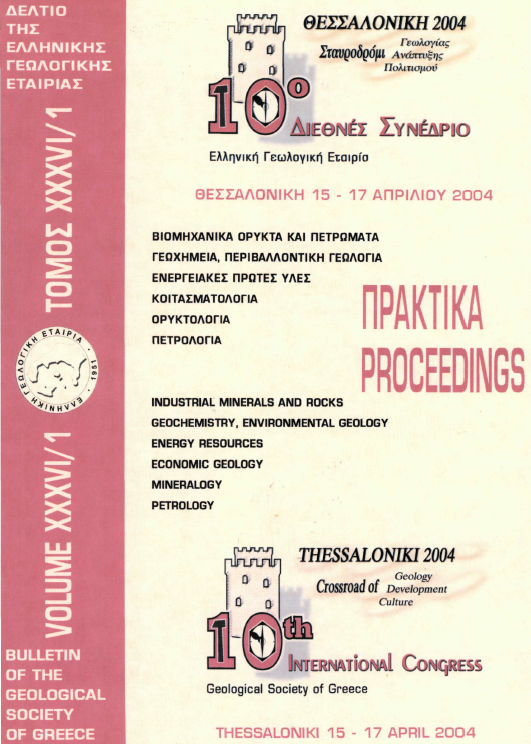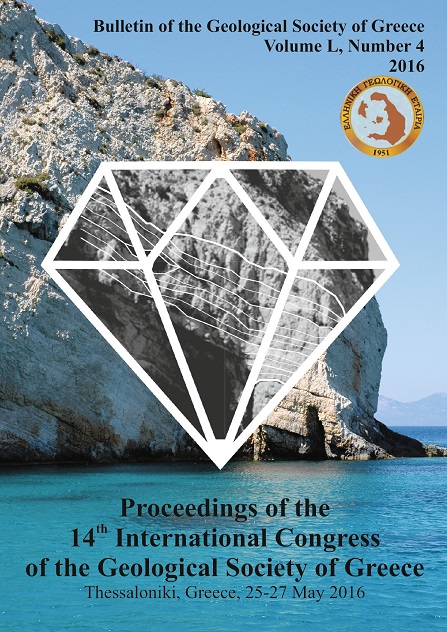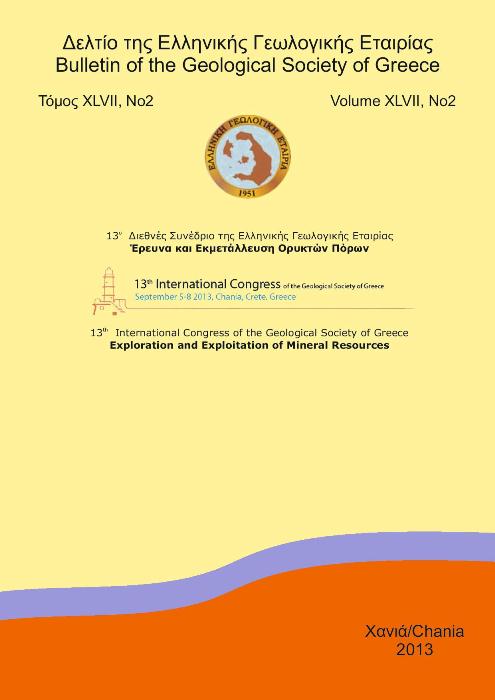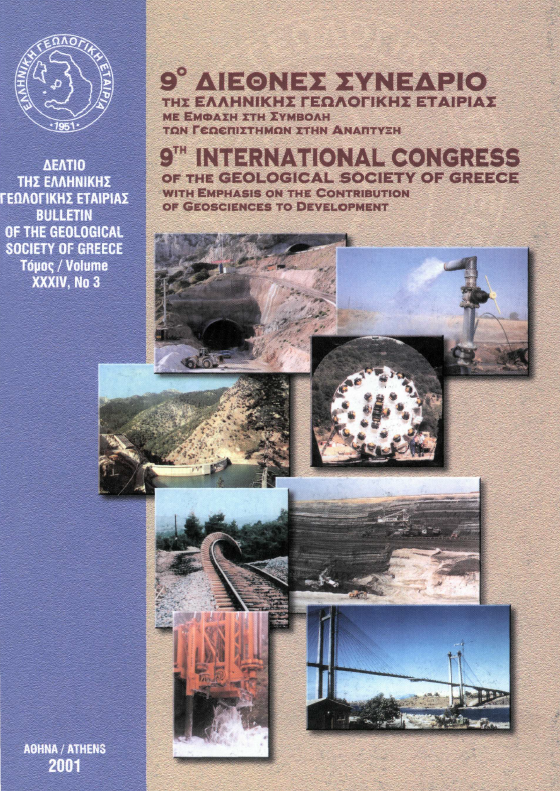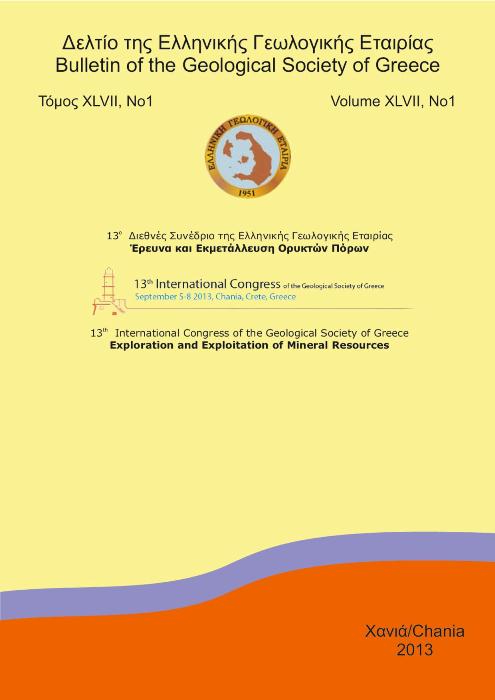NEW FIND OF ZUNYITE IN ADVANCED ARGILLIC ALTERATION OF RHYOLITES, KOS ISLAND, SOUTH AEGEAN VOLCANIC ARC , GREECE
Περίληψη
Zunyite [Ali3SÌ5C>2o(OH,F)i8CI], an extremely rare mineral, was found as an accessory mineral in highly altered rhyolitic rocks at Kefalos, southwestern Kos, and in a completely kaolinized rhyolitic dyke at Asfendiou, northeastern Kos. It is associated with dickite, kaolinite, quartz and minor pyrophyllite. Kos Island contains both Tertiary and Quaternary volcanic rocks. Zunyite has been identified by XRD and studied by SEM, EDS, Raman spectroscopy and FTIR spectroscopy. The presence of zunyite, in the highly altered samples is significant for the determination of the conditions of the hydrothermal alteration that took place. Zunyite crystals, are up to 90 pm in diameter but usually are less than 10 pm; the crystals are partly covered by kaolinite layers. EDX analyses on the surface of zunyite revealed AI2O3/S1O2 values raging from 2.6 to 2.7. The occurrence of zunyite suggests incorporation of hydrothermal fluids rich in F" and CI", thus indicating contamination by seawater
Λεπτομέρειες άρθρου
- Πώς να δημιουργήσετε Αναφορές
-
Papoulis, D., Tsolis-Katagas, P., & Katagas, C. (2004). NEW FIND OF ZUNYITE IN ADVANCED ARGILLIC ALTERATION OF RHYOLITES, KOS ISLAND, SOUTH AEGEAN VOLCANIC ARC , GREECE. Δελτίο της Ελληνικής Γεωλογικής Εταιρείας, 36(1), 474–480. https://doi.org/10.12681/bgsg.16738
- Ενότητα
- Ορυκτολογία και Κρυσταλλογραφία

Αυτή η εργασία είναι αδειοδοτημένη υπό το CC Αναφορά Δημιουργού – Μη Εμπορική Χρήση 4.0.
Οι συγγραφείς θα πρέπει να είναι σύμφωνοι με τα παρακάτω: Οι συγγραφείς των άρθρων που δημοσιεύονται στο περιοδικό διατηρούν τα δικαιώματα πνευματικής ιδιοκτησίας επί των άρθρων τους, δίνοντας στο περιοδικό το δικαίωμα της πρώτης δημοσίευσης. Άρθρα που δημοσιεύονται στο περιοδικό διατίθενται με άδεια Creative Commons 4.0 Non Commercial και σύμφωνα με την οποία μπορούν να χρησιμοποιούνται ελεύθερα, με αναφορά στο/στη συγγραφέα και στην πρώτη δημοσίευση για μη κερδοσκοπικούς σκοπούς. Οι συγγραφείς μπορούν να: Μοιραστούν — αντιγράψουν και αναδιανέμουν το υλικό με κάθε μέσο και τρόπο, Προσαρμόσουν — αναμείξουν, τροποποιήσουν και δημιουργήσουν πάνω στο υλικό.

